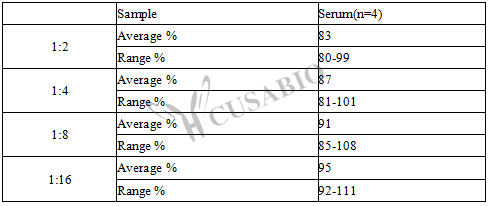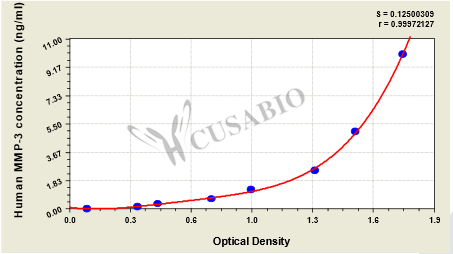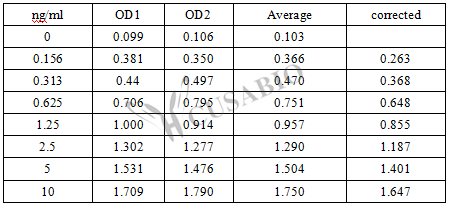This Human MMP3 ELISA Kit is suitable for qualitatively determining MMP3 concentrations in multiple biological fluids, including human serum, plasma, and tissue homogenates in vitro. MMP3, a zinc-dependent protease, has broad substrate specificity and can degrade fibronectin, laminin, elastin, collagen IV, and proteoglycans of the extracellular matrix (ECM) in the systemic organs. MMP3 is involved in normal extracellular matrix turnover during embryonic development, organ morphogenesis, and wound healing, and in tissue destruction associated with aneurysms, cancer, arthritis, and heart failure. It is also associated with the pathogenesis of neurodegenerative diseases including Alzheimer's disease (AD) and Parkinson’s disease (PD). It has also been reported the important role of MMP3 as a signaling molecule in the neuronal apoptotic process as well as in neuroinflammation.
This kit uses the quantitative sandwich-based enzyme immunoassay technique to measure the amount of human MMP3 in the sample. Standards and samples are respectively added to the microplate wells pre-coated with an anti-human MMP3 antibody. Biotin-labeled MMP3 antibody, HRP-avidin, and TMB substrate are pipped into the microplate in turn. The capture antibody pre-coated on the plate captures the MMP3 in the rat samples. MMP3 binds to the biotinylated anti-human MMP3 monoclonal antibody. And the biotin on the biotinylated anti-human MMP3 monoclonal antibody binds to the avidin on the enzyme label, forming immune complexes. The color renders blue after the addition of the TMB substrate. The addition of the stop solution into the wells immediately turns the blue into yellow. The concentration of MMP3 in the samples is directly proportional to OD (450nm). Each manufactured lot of this ELISA kit was quality tested for criteria such as sensitivity, specificity, precision, linearity, and lot-to-lot consistency.









